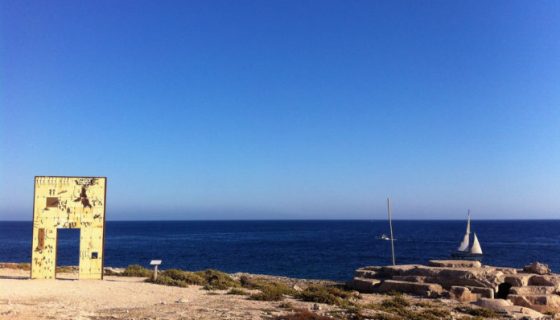- Mediterranean Hope - Federazione delle chiese evangeliche in Italia
- mh@fcei.it
Europe: strong with the weak and weak with the strong
Interview with Fulvio Vassallo Paleologo, Professor of Rights of Asylum and the Constitutional Status of Foreigners at the University of Palermo. What is your view on the proposals being discussed by Europe in these days? More specifically, the decision to destroy the boats in Libya and the distribution of migrants to different European countries? Europe is proving to be strong with the weak and weak with the strong. It was unable to adopt a European policy on asylum and border control.
There was a transfer from immigration policies to security policies, bypassing the European Parliament, so that only a few ministers gathered in Brussels decided on this issue. The overall plan launched by the Commission and backed by Parliament seems to have lost the plot, and only calls for an intervention in Libya, specifying three stages of action: the first one in international waters, which already seems to have been decided, then an action in Libyan waters and in the Libyan territory which requires coverage by the United Nations, which perhaps will never come. Destroying the boats is an adventurous plan that would have side effects, such as the killing of fishermen and perhaps also of migrants who may be on board these vessels. Unfortunately, however, this proposed course of action has made inroads in the media, the elections are close and some politicians are boasting about a strong response given by Europe, instigated by Italy, which is absolutely not true. There is also much confusion regarding the reception process, a strong point of Italian and European politics. Some East European countries have clearly stated that they do not intend to take in refugees, not even one, based on the distribution criteria. Europe has offered to help 20,000 people in two years, which would mean several hundred for each European country, but even this seems too many. This plan is failing on this aspect, even more so after France, and then Spain, disagreed with the distribution criteria of refugees. The last part, which has been left in the background but which is worrying nonetheless, is the Khartoum Process. This proposes that European countries and especially Italy use transit countries such as Libya, Niger and Sudan, as partners for the rejection and selection policies of refugees, favouring a market for the traffickers that they are trying to fight. The Khartoum Process therefore means making agreements with dictatorships to block the flow of migrants seeking to escape wars, oppression and imprisonment. As you said, before destroying the boats in Libya, a final decision is needed from the UN. What if this does not come, what should Italy do? If the UN does not support the proposal, how will the situation develop? If the UN does not endorse this proposal, the European Union has no legal means to intervene in Libyan waters and territories, especially in the presence of a strong and consistent position of both “governments” that currently divide Libya. Both the government of Tripoli and that of Tobruk have told Europe that they would consider any intrusion in the areas still under their national sovereignty as an act of war. It should also be said that if the peace talks are not supported and the aspirations for autonomy are fuelled by supplying arms or giving political support to only one of the two parties, something which according to the embargo is continuing to happen, there is a real risk of Libya becoming another Somalia in the Mediterranean. At the moment, however, the conditions do not exist to be able to declare the need for action under the UN Charter. Therefore, I believe that the Security Council will not approve a military action by the European Union. In this context, what do you think of the actions carried out recently by the Libyan Coast Guard to recover and stop migrants who are trying to reach Europe? This action shows how the different Libyan authorities are trying to gain standing with European Countries, demonstrating that they control the territory and that they can stop migrants from leaving their coasts. This is an attempt to get resources, funding, and political support for their demands to overpower the other party. At the moment, there are no conditions to consider Libya a partner for border control policies. Instead, the priority should be given to rescuing people who flee, to the opening of humanitarian corridors with the granting of visas for protected entry into Europe, to the legal protection of people who have to be evacuated from Libya to neighbouring countries, where they can then leave to go to EU countries or other countries in the world. As the Federation of Evangelical Churches in Italy, together with the Community of Sant’Egidio, we are working on a proposal to open a “Humanitarian Desk” in Morocco. Do you think this could be a useful signal to follow? This signal shows that it is possible to create humanitarian channels. Of course, each country is different. Do not forget that Morocco is a member of the Geneva Convention, just like Egypt and Algeria, but these countries continue to reject thousands of people who have all the requirements to be declared refugees. In addition, many migrants no longer aspire to coming to Europe because they know it is no longer a continent that will guarantee them a life of dignity, like it was ten years ago. Today, they set their sights on countries in North America, the United States, Canada and even South America. Therefore, a plan could be devised by the United National to relocate people who have been forced to flee their country to countries that offer minimal conditions for a dignified reception, which still needs to be verified in Europe and Italy, especially in view of recent events such as those of Ponte Mammolo in Roma. MH is reflecting more and more on the political aspect of the North-South imbalance in the world and on the contradictions that this produces in the Mediterranean. What is your view on this? It is evident that the global crisis is far from being over. Today this crisis needs a war to regulate relations between Countries and relations on the mobility of people. Meanwhile, a war is declared on people smugglers, with the risk of having devastating effects if it goes from a war on smugglers to a war in countries where the smugglers are found, without encouraging political solutions, without looking for a way to guarantee human rights in countries of transit, only worrying about stopping the departures. By Marta Bernardini and Francesco Piobbichi





